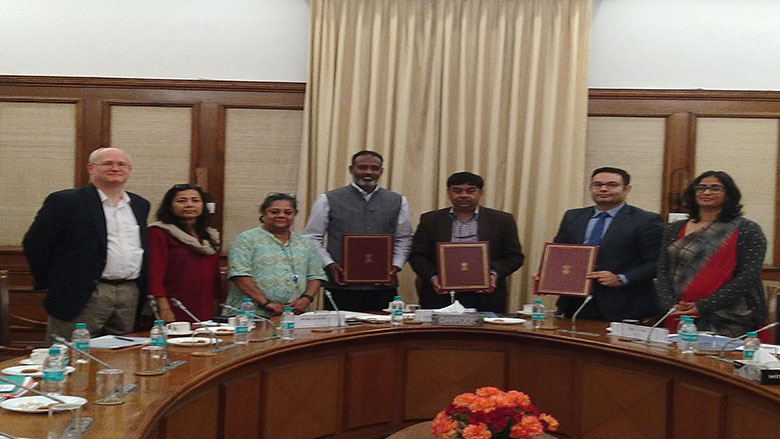New Delhi, March 5, 2019 – The Government of India, the state Government of Chhattisgarh and the World Bank today signed a $25.2 million loan agreement to support the state’s reforms in expenditure management. .
The Chhattisgarh Public Financial Management and Accountability Program which is the first Bank-financed state-level project in Chhattisgarh in nearly a decade, will also help the state strengthen its direct benefit transfer and tax administration systems.
. The World Bank will facilitate cross-learning from public financial management (PFM) reforms undertaken by it in other Indian states while bringing in global experiences.
“The Government of India supports reforms that will contribute toward improving public expenditure management,” said Sameer Kumar Khare, Additional Secretary, Department of Economic Affairs, Ministry of Finance. “The Chhattisgarh PFM reflects the priorities identified by the state, and builds, incrementally, on ongoing reforms around public financial management,” he added.
The Loan Agreement was signed by Sameer Kumar Khare, Additional Secretary, Department of Economic Affairs, Ministry of Finance, on behalf of the Government of India; Kamal Preet Dhillon, Secretary, Finance, on behalf of the Government of Chhattisgarh; and Hisham Abdo, Acting Country Director, World Bank India, on behalf of the World Bank
“The Chhattisgarh government has correctly identified improvements in public financial management as a key step for achieving its development potential. This will ensure that the state can invest more and with greater efficiency, for its poor and vulnerable,” said Hisham Abdo, Acting Country Director, World Bank. “The new project, with its focus on IT solutions, will benefit almost 11,000 village panchayats and 168 urban municipalities in the state”.
With 92 percent households in the state belonging to scheduled castes, scheduled tribes and other backward classes, Direct Benefit Transfers (DBTs) are increasingly being used by the Central and state governments to channel resources to households and individuals. .
Almost 11,000 village panchayats and 168 urban municipalities in Chhattisgarh are likely to benefit from the program’s emphasis on transparency and accountability. It will also support the state government’s initiative to put in place systems to automate most of the processing and payment of DBTs to beneficiaries; improve property tax collection through the digitization of property tax rolls; and extending the property surveys to 47 municipalities. Enhanced outreach and improved tax return filing performance are also likely to help the state’s objective of increasing the number of GST taxpayer registrations.
“With enhanced devolution of taxes, 60 percent of the public expenditure now takes place at the state level. This, coupled with greater flexibility in planning development programs to suit local needs, deepening public financial management capacity at the state level is imperative. World Bank’s international experience and learnings from other states of India will help Chhattisgarh gain from appropriate solutions,” said Manvinder Mamak and Papia Bhattacharjee, Senior World Bank Financial Management Specialists, and John Blomquist, Lead Economist and the Task Team Leaders for the program.
The $25.2 million loan from the International Bank for Reconstruction and Development (IBRD), has a 5-year grace period, and a final maturity of 10.5 years.


